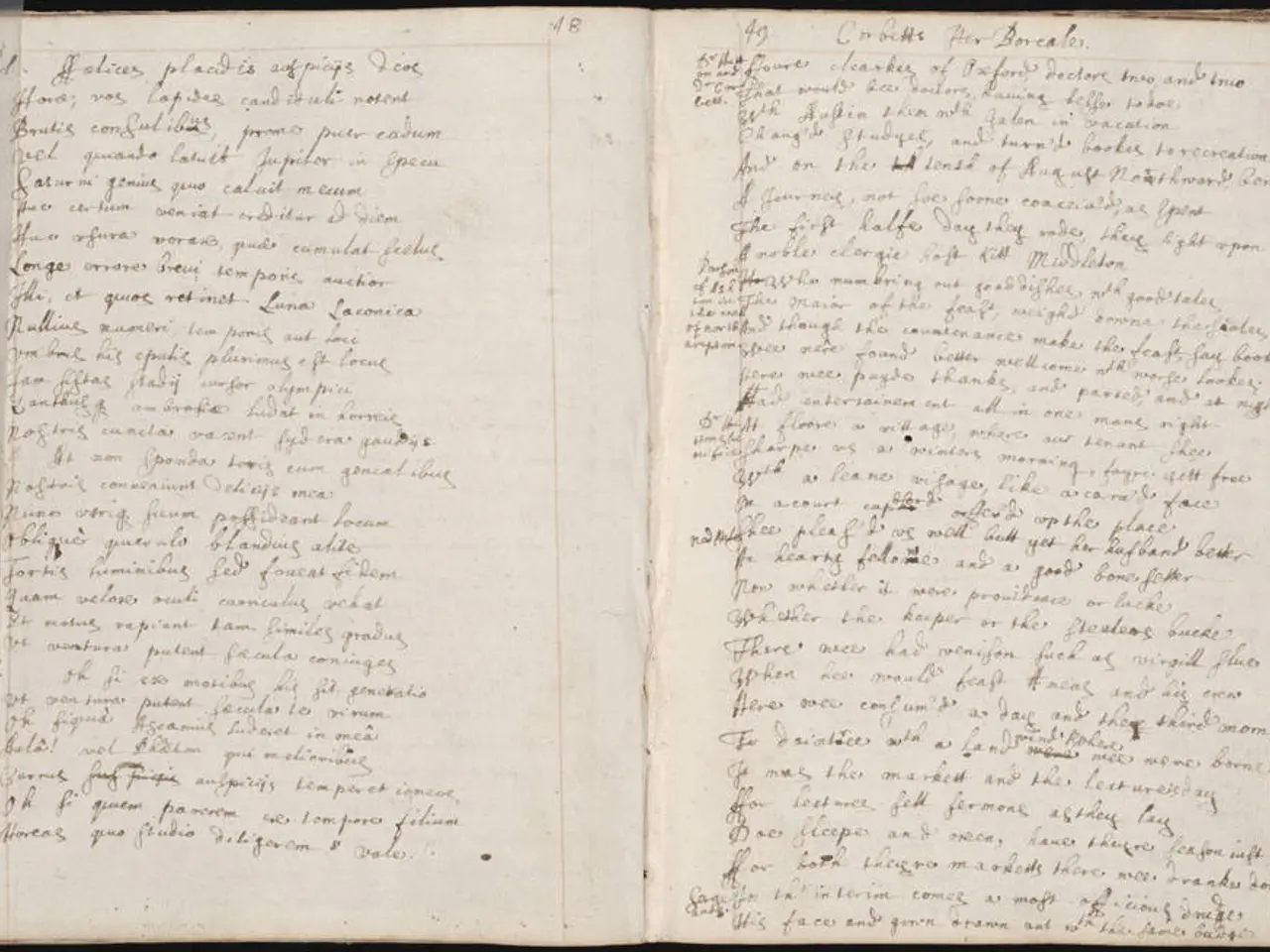Empathy Guidance: Unveiling Emotional Shields for Empaths
In a world where emotions can often feel overwhelming, empaths – those who deeply and intuitively sense the emotions of others – may find themselves particularly affected. However, a simple yet powerful tool can help them navigate these emotional landscapes: journaling.
Journaling can become an emotional anchor for empaths, providing a safe space to process and release pent-up emotions. This practice offers a structured approach to protect emotional health and cultivate emotional boundaries, helping empaths recognise the source of their emotions, set boundaries, and promote emotional health and peace.
One of the primary benefits of journaling for empaths is emotional release and clarity. By providing a space to express and manage their emotions, journaling helps reduce stress and anxiety that often come with being highly sensitive. Moreover, it improves mental clarity by organising thoughts and emotions, which is crucial for making sound decisions and maintaining focus.
Journaling also enhances self-awareness and emotional intelligence. It encourages introspection, helping empaths better understand their emotions, triggers, and behaviours. This increased self-awareness is essential for personal growth and resilience. Regular reflection on emotions fosters empathy and understanding for oneself and others, improving relationships and communication skills.
In addition, journaling processes emotional overload, helping empaths cope with challenging emotional experiences more effectively. Reflecting on past challenges and successes helps empaths learn from their experiences, enhancing their ability to cope with future emotional difficulties.
There are several practical journaling techniques for emotionally sensitive individuals. Gratitude journaling, for instance, can help shift perspective, cultivate positivity, and develop a more resilient mindset by acknowledging and appreciating the good in their life. Identifying emotional triggers is another beneficial technique, allowing empaths to prepare and manage these situations more effectively. Daily reflections provide a consistent outlet for expressing emotions and processing experiences, helping empaths maintain emotional balance.
One effective writing prompt for empaths is "What am I feeling right now, and what emotions belong to me?" This helps discern between personal and absorbed emotions. Another effective prompt is "What energy am I carrying that I need to release today?" to help empaths identify and release absorbed energies. The prompt "How can I protect my emotional energy today?" encourages empaths to set emotional boundaries and find ways to protect their well-being.
The constant emotional influx can impact every aspect of an empath's life, including relationships, work life, and physical health. Emotional overload can lead to burnout, depression, and anxiety. The Journal of Clinical Psychology highlights how stress and emotional overload are closely linked to physical ailments like headaches, fatigue, and even chronic pain.
Sharing the benefits of journaling with other empaths can create a space for emotional understanding and growth. By incorporating these journaling practices, empaths can not only regain emotional clarity but also develop the tools necessary to manage emotional overload effectively.
Journaling, grounded in mindfulness and self-awareness, is a science-backed health-and-wellness tool for empaths struggling with emotional overload. By regularly engaging in journaling practices, such as gratitude journaling or identifying emotional triggers, empaths can foster emotional health, mental clarity, and resilience, ultimately reducing the risk of burnout, depression, and anxiety associated with emotional overload.




